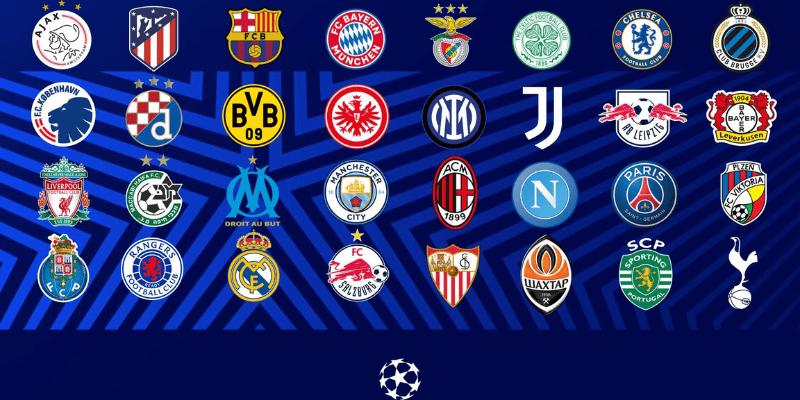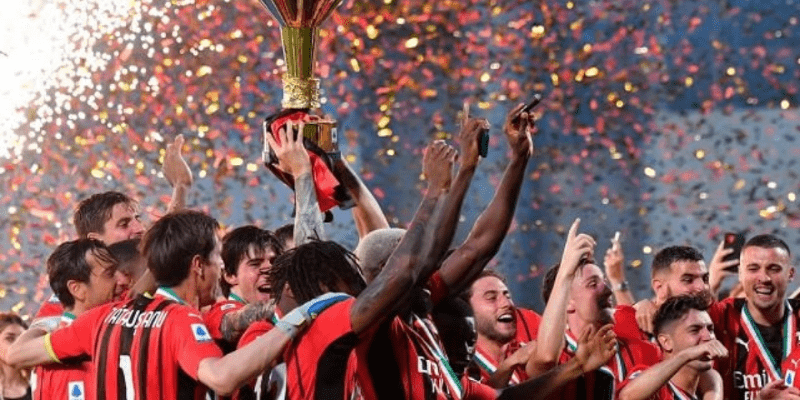When you hear “most successful clubs in UCL history,” your mind probably drifts straight to Real Madrid, to nights at the Bernabéu, and to iconic European nights etched into football lore. In this article, ZaneyStrike will guide you through the legendary institutions, the record-holders, and the stories behind the statistics. We’ll explore not only who has won the most, but also what “success” really means in the context of the UEFA Champions League (and its predecessor, the European Cup).
Defining “Success” in Europe’s Biggest Club Competition

Success in the UCL is often measured by titles won — and indeed, the tally of European Cups/Champions League trophies is the most straightforward metric. But that’s not the only lens:
- Finals reached vs. finals won
- Consistency over decades (deep runs, qualifications)
- Win ratio, goal records, unbeaten campaigns
- Impact on domestic and continental prestige
In this article, our main yardstick is titles won, though I will also reference supporting metrics to paint richer portraits of the all-time greats.
Title Leaders: The Giants of European Glory
Here is a ranking of clubs by total Champions League / European Cup trophies as of 2025:
| Rank | Club | Titles Won |
| 1 | Real Madrid | 15 |
| 2 | AC Milan | 7 |
| 3 (tie) | Bayern Munich | 6 |
| 3 (tie) | Liverpool | 6 |
| 5 | Barcelona | 5 |
| 6 | Ajax | 4 |
| 7 (tie) | Manchester United | 3 |
| 7 (tie) | Inter Milan | 3 |
Real Madrid stands head and shoulders above the rest with 15 titles, more than double any other club. Teams like AC Milan, Bayern Munich, and Liverpool follow — but none come close in sheer dominance. (Data current through 2025.)
Real Madrid: The Kings of Europe
No surprise here. Real Madrid’s supremacy in European competition is unmatched. They won the first five editions (1956–60), and later produced multiple three–peat sequences (2016–2018). They’ve been a fixture in finals and semifinals for decades, making their lead not only about tally but longevity and consistency.
AC Milan: Italian Elegance Meets European Power
With 7 titles, AC Milan holds the second-most. Their European pedigree is storied: the days of Sacchi, Capello, and Maldini are steeped in European conquests. Even through eras of domestic challenges, Milan has always lurked as a continental threat.
Bayern, Liverpool, Barcelona: Champions in Their Own Right
- Bayern Munich (6 titles) have combined German consistency with European ruthlessness — rarely a season they aren’t serious contenders.
- Liverpool (6 titles) add emotional weight, comebacks, Anfield nights, and iconic stories to their European resume.
- Barcelona (5 titles) brought the tiki-taka era to European heights, and their style often matched their silverware.
These clubs, along with Ajax and others, are fixtures in conversations about European greats.
Beyond Titles: Metrics That Deepen the Picture
While titles are king, other metrics help understand the breadth of these clubs’ European significance.
Finals Ratio & Consistency
- Clubs like Real Madrid and Milan have not just many finals, but high success rates when they get there.
- Some clubs have reached multiple finals but failed often — e.g. Juventus has appeared many times in the final but has lost more finals than many realize.
Depth Across Eras
- Real Madrid has spanned eras (pre-1992 European Cup, then the modern UCL) and remained dominant.
- A club like Liverpool or Barcelona has peaks and valleys, with certain eras of dominance and droughts.
Match Wins, Knockout Runs, Appearances
- Clubs with consistent knockout runs rack up many match wins even when not winning titles.
- Appearances in the Champions League (or European Cup) over decades show institutional strength.
When all those are factored, Real Madrid’s lead only magnifies — not just more trophies, but more deep runs and consistent excellence.
Legends, Moments, and Records That Define These Clubs

To understand why these clubs are the most successful clubs in UCL history, we also need to walk through their legendary moments.
Real Madrid
- The first five European Cups, establishing a legacy.
- The “La Décima” (tenth title) delivered after long pursuit.
- Record wins, goals scored, semifinal streaks, and final appearances over multiple decades.
AC Milan
- The 1989, 1990 back-to-back titles under Arrigo Sacchi and Fabio Capello.
- The 2003 Milan vs. Juventus final.
- The 2007 title under Carlo Ancelotti bridging eras.
Bayern Munich
- The three-peat of the 1970s (1974, 1975, 1976).
- The 2013 and 2020 titles under Jupp Heynckes and Hansi Flick, respectively.
- Repeated dominance and German consistency.
Liverpool
- Dramatic comebacks: 2005 Istanbul final against AC Milan.
- Their European pedigree in the 1970s/80s and revival under Klopp.
- Night after night of Anfield magic.
Barcelona
- The 2009 treble season (La Liga, Copa del Rey, Champions League).
- Peak tiki-taka years under Pep Guardiola (2009, 2011).
- Rivalries with Real Madrid infusing European nights with extra passion.
Ajax
- The brilliant total football era of the early 1970s (three European Cups in a row).
- Their 1995 surprise run to the title with a young squad (van Gaal era).
- Their ongoing reputation as a youth factory and European disruptor.
Recent Shifts: PSG, City, and the Changing Landscape
Even in 2025, new names enter the narrative of “most successful clubs in UCL history.”
- Paris Saint-Germain won their first Champions League title in 2025, marking a landmark moment in French club football.
- Manchester City, while historically lacking in UCL trophies, have become regular deep-runners and may climb this ladder in coming years.
- The increasing financial power of clubs outside the traditional “Big Five” has introduced new challengers, but the historical giants still hold the foundation.
These shifts don’t dethrone the legends — but they add chapters to the ongoing epic.
Why the Title Counts Matter (And Why They Don’t Tell the Whole Story)

- Titles remain the clearest proof of success in the UCL — the final act that no one forgets.
- But the drama, consistency, and legacy built around those clubs make the difference.
- A club may have fewer titles but more finals, or a higher win percentage in finals, and that nuance matters.
- Also, eras, styles, financial contexts, and league competition affect trajectories — comparing clubs across generations is never simple.
Still, when we talk about the most successful clubs in UCL history, it is Real Madrid first, then a circle of Milan, Bayern, Liverpool, Barcelona, Ajax and a few others who built dynasties.
Final Thoughts
Most successful clubs in UCL history is not just a statistic — it’s a story of domination, passion, legacy, and unforgettable nights at the highest level of club football. Real Madrid’s 15 titles stand as the benchmark. But clubs like AC Milan, Bayern Munich, Liverpool, Barcelona, and Ajax brought their own styles, turning European nights into mythic chapters.
If you crave deeper dives — head-to-head comparisons, decade-by-decade breakdowns, or player legends tied to those clubs — ZaneyStrike is here to deliver. Bookmark, share, comment, and return — because when you want facts, emotion, and the heart of European football, this is your spot.






